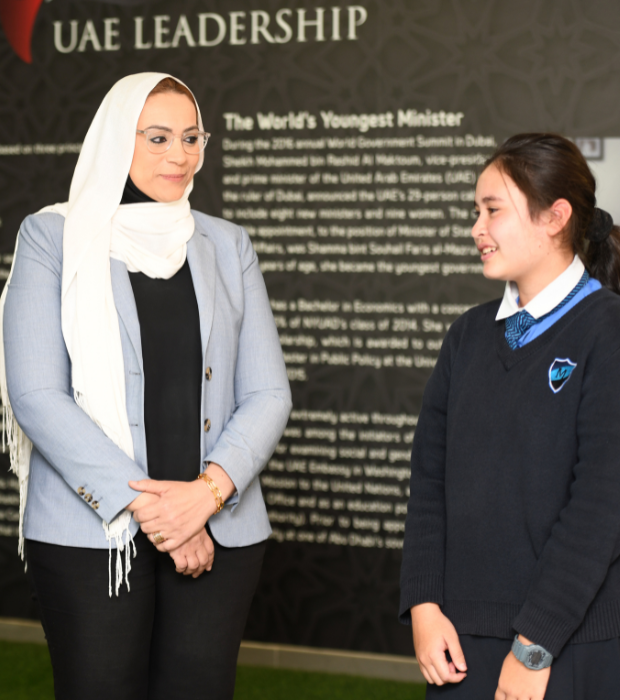
Arabic and Islamic
Arabic Language Curriculum
Arabic is one of the most historically rich and most widely spoken languages in the world. At GEMS Metropole School- al Waha we offer an Arabic language programme for both native and non-native speakers to give all our children an opportunity to be able to communicate in Arabic language.
Here's a look at our Arabic curriculum:
- Arabic for native speakers: Taught from Year 1 to Year 13
- Arab students are expected to follow the standards set in the National Curriculum
- Document for Arabic first language and use the MoE prescribed textbooks as the main resource in their curriculum
- Arabic for non-native speakers: Taught from Year 1 to 10.
- Non-Arab students are expected to follow the curriculum standards and expectations set in the 2017/2018
- Arabic lessons cater to different levels of language proficiency – based on Years of study –for our non-native speakers.
- All non-Arabs students will continue learning Arabic till Year 10. Optional from Year 11 onwards.
Activities offered in class are adapted to meet the needs of each level in all Arabic lessons.
Islamic Studies
Mandatory for Muslim students, focusing on Islamic principles, history, and their relevance in today's world. In Islamic Studies, we follow the MOE curriculum and KHDA framework, linking the curriculum with real life.
The Islamic curriculum contains six standards and topics of great importance to the students' interests, lives, and environment. These standards are as follows: Divine Revelation, Islamic Beliefs, Islamic Rulings and Aims, year group across the school.
The Islamic curriculum aims to promote moderate Islamic values that reflect the true Islam adopted by the UAE, which is linked to the original Arab values and concepts. Our Islamic education curriculum is built on exploring verses of the Quran and the sayings of the Prophet Mohammad (PBUH). It aims to give pupils a clear, thorough understanding of Islamic teachings, moral behaviour and Islamic etiquette. Through their Islamic education, children increase their knowledge of Islam by learning the stories of prophets and understanding aspects such as the manners of living a Muslim's life, the Five Pillars of Islam, and Islamic faith and morals.
This enables them to effectively apply these teachings to their contemporary lives. Religious occasions such as Eid al-Fitr and Eid al-Adha are observed so that children realize their importance and value. As the Holy Quran builds the character and conscience of a true Muslim, children are encouraged to respect and memorise the Holy Quran. School-organised competitions internal, across the cluster and International to celebrate their achievements in Quran memorisation.


